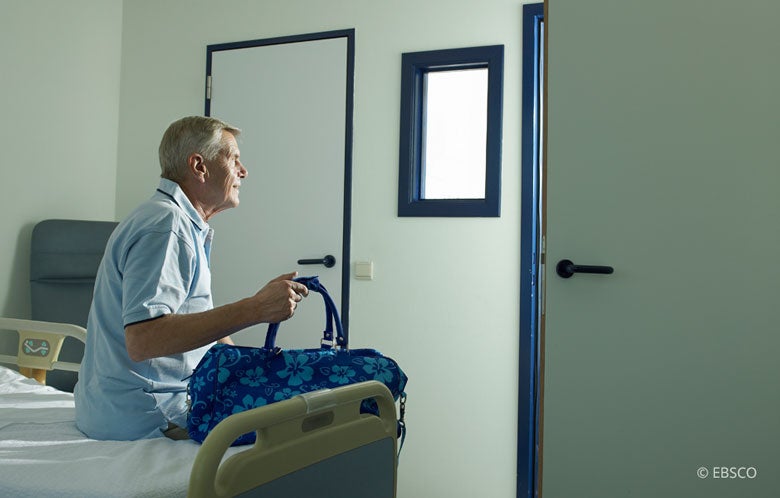As the world continues to try to limit the spread and impact of the coronavirus disease 2019 (COVID-19) pandemic, there is increasing focus on the care and treatment of symptomatic patients who are SARS-CoV-2 positive.
At time of writing, there are currently no FDA-approved medications for the treatment or prophylaxis of COVID-19. However, drugs that are approved to treat other diseases may be effective and are currently being used and studied. In addition, agents which have never been approved for any indication are also being investigated for potential activity against the virus based on in vivo and/or in vitro data. Safety and efficacy for these drugs are not yet established in patients with COVID-19. Patients receiving hydroxychloroquine, chloroquine and azithromycin for FDA-approved uses have reported difficulty in filling their prescriptions, presumably because the drugs are being used to treat COVID-19.
This article will focus on five agents of interest.
Hydroxychloroquine is an antimalarial agent which is FDA-approved for malaria, rheumatoid arthritis and lupus erythematosus. The drug has demonstrated in vitro activity against coronaviruses and its immunomodulatory activity theoretically could contribute to an anti-inflammatory response in patients with viral infections. A small, randomized, pilot trial of 30 patients conducted in China evaluated the efficacy and safety of hydroxychloroquine to treat COVID-19. Another small nonrandomized clinical study from France has published interim results of its data evaluating hydroxychloroquine with or without azithromycin.
A related drug, chloroquine phosphate, has also exhibited in vitro activity against coronaviruses including those causing SARS-CoV-1 and SARS-CoV-2 and MERS-CoV. However, it was noted that hydroxychloroquine was found to be more potent than chloroquine in vitro. A systematic review concluded that there is pre-clinical evidence of effectiveness and safety of chloroquine.
In the USA, the FDA has issued an Emergency Use Authorization (EUA) permitting the emergency usage of hydroxychloroquine and chloroquine from the strategic national stockpile for use in adults and adolescents weighing at least 50 kg hospitalized for COVID-19 for whom clinical trials are not available or participation is not feasible. Healthcare providers should contact local or state health departments to request the drug. To mitigate risk of unapproved use, the EUA includes certain mandatory requirements including adverse event reporting. Both drugs are associated with serious adverse effects including QT prolongation with prolonged use in patients with hepatic or renal dysfunction and immunosuppression but have been reportedly well-tolerated in COVID-19 patients. A dose reduction for both hydroxychloroquine and chloroquine of 50 percent for GFR < 10 mL/minute, hemodialysis, or peritoneal dialysis has been recommended by experts, but no dose reduction is recommended if GFR > 10 mL/minute.
The dose of hydroxychloroquine suggested in the EUA is 800 mg orally on day one, followed by 400 mg/day orally for four to seven days of total treatment, based on clinical evaluation. The dose of chloroquine phosphate suggested in the EUA is one g orally on day one, followed by 500 mg/day orally for four to seven days of total treatment based on clinical evaluation.
Azithromycin is a commonly prescribed macrolide antibacterial drug that has demonstrated some in vitro activity against viruses such as influenza and Zika but not SARS-CoV-2. Azithromycin is being investigated as adjunctive therapy based on immunomodulatory or anti-inflammatory effects when used in patients with some viral infections, including COVID-19. Hydroxychloroquine and azithromycin are BOTH associated with QT prolongation and caution is advised. The dose of azithromycin that has been studied as adjunctive therapy for COVID-19 is 500 mg on day one, followed by 250 mg daily for four days.
Remdesivir (GS-5734) is an investigational broad-spectrum antiviral (nucleotide analog) which has shown activity in vitro as well as in animal models against SARS-CoV and MERS-CoV. The manufacturer has initiated several Phase 2 and Phase 3 trials for use in COVID-19, some of which are listed below. Remdesivir is also available for severely ill patients with confirmed COVID-19 via expanded emergency access from the manufacturer. Compassionate use access may be available for U.S. Department of Defense personnel. Adults doses in clinical trials include 200 mg IV on day one followed by 100 mg IV daily on days two to five or 200 mg IV on day one followed by 100 mg IV daily on days two to ten.
Lopinavir/ritonavir (LPV/RTV) (Kaletra), an antiretroviral agent (protease inhibitor), which is currently FDA-approved for treatment of patients with HIV. LPV/RTV has shown in vitro activity as well as some benefit in animal studies against SARS-CoV and MERS CoV. Published clinical trials investigating LTV/RTV include a randomized open-label trial in hospitalized adults with COVID-19 as well as a retrospective study evaluating use of LPV/RTV with or without arbidol (arbidol is an influenza medication not available in the United States). While initial results do not show significant clinical benefit, lopinavir/ritonavir may reduce surrogate outcomes such as SARS-CoV-2 viral load. The adult dose for LPV/RTV (with or without other agents) in clinical trials is usually lopinavir 400 mg/ritonavir 100 mg orally twice daily for up to 21 days.
Active clinical trials (including those recruiting and enrolling by invitation) investigating hydroxychloroquine/chloroquine, remdesivir and lopinavir/ritonavir either in combination or alone for treating patients with COVID-19 include:
- NCT04334967 (United States: evaluating hydroxychloroquine compared to standard of care in newly diagnosed COVID-19 patients)
- NO COVID-19 (Norway: evaluating hydroxychloroquine to standard of care in adult patients with COVID-19)
- TOCOVID (Spain: evaluating hydroxychloroquine vs. azithromycin vs. tocilizumab in hospitalized patients with COVID-19)
- NCT04307693 (South Korea: evaluating hydroxychloroquine or lopinavir/ritonavir in patients with mild COVID-19)
- Coalition Covid-19 Brasil II (Brazil: evaluating addition of hydroxychloroquine to azithromycin in patients with severe pneumonia requiring hospitalization)
- CloroCOVID19 (Brazil: evaluating different chloroquine regimens in patients with severe acute respiratory syndrome due to SARS-CoV-2)
- NCT04292899 (worldwide sites, including the United States: Phase 3 study evaluating different remdesivir regimens in patients with severe COVID-19)
- NCT04292730 (worldwide sites, including the United States: Phase 3 study evaluating different remdesivir regimens in patients with moderate COVID-19)
- Adaptive COVID-19 Treatment Trial (ACTT) (United States, Korea, Japan, and Singapore: evaluating remdesivir versus placebo in hospitalized patients)
- DisCoVeRy (France: evaluating lopinavir/ritonavir, remdesivir, hydroxychloroquine and addition of interferon beta-1a to lopinavir/ritonavir in hospitalized patients)
- NCT04252664 (China: evaluating remdesivir versus placebo in hospitalized adults with mild and moderate COVID-19)
- NCT04257656 (China: evaluating remdesivir versus placebo in hospitalized adults with severe COVID-19)
- NCT04276688 (Hong Kong: evaluating lopinavir/ritonavir, ribavirin and interferon beta 1b in hospitalized patients)
- NCT04255017 (China: evaluating arbidol, oseltamivir, and lopinavir/ritonavir in patients with viral pneumonia)
- ELACOI (China: evaluating lopinavir/ritonavir versus arbidol in patients with COVID-19).
In addition to the above agents, many other therapies are being explored. Updates and interim guidance regarding therapeutic options for COVID patients may be found at the Center for Disease Control (CDC) COVID-19 website. A full list of COVID-19 related clinical trials can be found at ClinicalTrials.gov.



